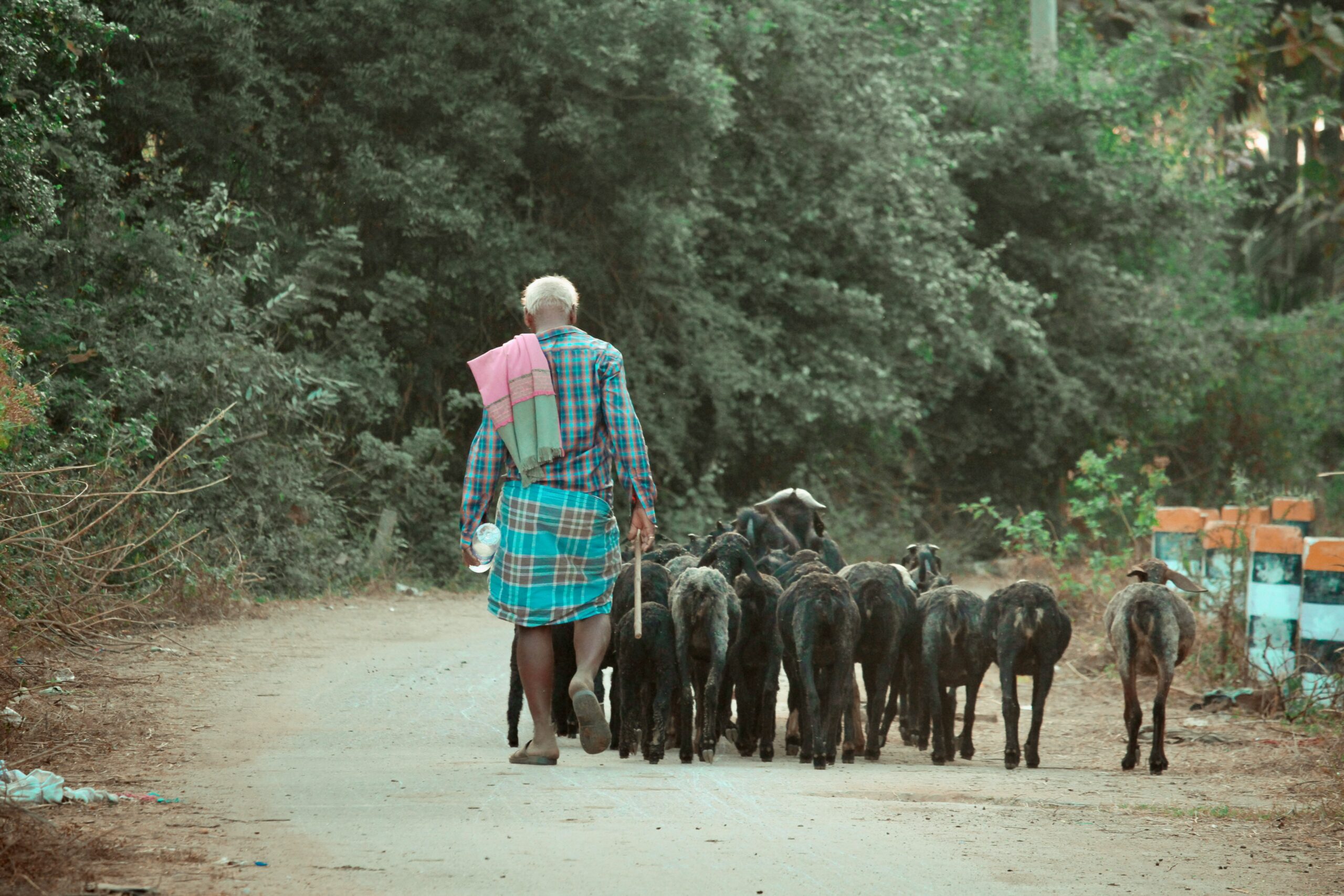The persistent existence of unreached places—regions where the gospel of Jesus Christ has yet to take root—continues to be a multifaceted challenge for missiologists. Despite the devoted efforts of missionaries and churches throughout history, there are still vast populations around the world that remain untouched by the transformative power of the gospel. This article explores some of the key reasons why these unreached places continue to resist Christian penetration, drawing from missiological insights and empirical observations.
Historical, Cultural, and Political Factors
One of the most significant barriers to reaching unreached people is the historical, cultural, and political environment in which these populations exist. Many unreached groups possess deeply entrenched cultural traditions, religious beliefs, and social structures that have been passed down through generations. These elements create a cohesive worldview and societal framework that makes it difficult for outsiders, including missionaries, to gain acceptance or influence within these communities.
For example, in certain Hindu or Muslim-majority areas, religious practices are intertwined with identity. For someone to convert to Christianity may be viewed as not just a change of belief but a betrayal of family, culture, and heritage. This dynamic creates resistance to missionary efforts as the community perceives the introduction of Christianity as an attack on their core values and way of life.
Political and economic circumstances also play significant roles in the resistance of unreached populations to the gospel. In some cases, oppressive regimes actively suppress religious freedom, severely persecuting those who embrace Christianity. Governments in countries like North Korea, Saudi Arabia, or parts of India create climates of fear and repression that not only discourage Christian missionaries but also put the lives of converts at risk. Additionally, economic hardship and poverty often mean that the immediate physical needs of people take priority over spiritual concerns. In regions where basic necessities like food, water, and healthcare are scarce, missionaries may struggle to find an entry point to begin their work.
Theological and Philosophical Obstacles
Theological and philosophical differences between Christianity and the belief systems of unreached populations are another challenge. Many unreached people groups adhere to religious systems deeply embedded in their cultural worldview, such as animism, Islam, Buddhism, or Hinduism. These religions offer their own explanations for life's ultimate questions—origins of the universe, purpose of life, and moral frameworks—that contrast sharply with Christian teachings.
For example, Islamic theology teaches that salvation is earned through good deeds, which contrasts with the Christian message of salvation through faith in Jesus Christ. In Hinduism, the belief in reincarnation and karma shapes the worldview in ways that conflict with Christian doctrines of heaven, hell, and the finality of judgment after death.
Overcoming these theological and philosophical barriers requires a nuanced approach. Missionaries must demonstrate respect for the religious convictions of unreached people while also clearly presenting the gospel message. This approach involves identifying points of connection between Christianity and local belief systems and framing the gospel in culturally relevant ways that are both faithful to Christian truth and understandable within the local context.
The Role of Syncretism and Cultural Relativism
Syncretism—the blending of different religious or cultural traditions—can also hinder gospel penetration. When missionaries introduce Christianity into new cultural contexts, the risk of syncretism arises, as local traditions and religious practices may be mixed with Christian teachings, creating a hybrid belief system. These hybrid forms of Christianity are often neither fully Christian nor fully traditional, diluting the transformative power of the gospel.
For example, in some African or Latin American contexts, indigenous beliefs in ancestral spirits or magical practices are sometimes mixed with Christian rituals, creating a syncretized form of Christianity that is at odds with orthodox Christian doctrine. This syncretism can hinder the gospel's ability to take deep root and grow within a culture, leading to a superficial form of Christianity that fails to challenge or transform the underlying worldview.
Cultural relativism—the belief that all cultural values and practices are equally valid—can also complicate gospel proclamation. In a world where cultural relativism is increasingly promoted, missionaries may face resistance from individuals who view Christianity as an imposition of foreign values. The challenge here is presenting the gospel as a universal truth without being perceived as culturally imperialistic.
The Limitations of Missionary Methods
The methods used by missionaries can significantly affect the success or failure of their efforts in unreached areas. Traditional Western missionary approaches, often steeped in Western cultural norms and assumptions, may not resonate with non-Western cultures. This has led to the need for a more culturally sensitive and adaptive approach to mission work.
For instance, missionaries must learn local languages, engage with local customs, and adapt their methods to be relevant to the specific cultural and historical contexts in which they work. This might involve recognizing and incorporating local storytelling traditions, rituals, or social practices in ways that can support the communication of the gospel. Indigenous leadership is also crucial—raising up local believers to take ownership of evangelistic and church-planting efforts can lead to more sustainable and effective Christian witness within their own culture.
Moreover, Western missionary methods that rely on direct evangelistic campaigns may be viewed as confrontational or inappropriate in more communal or honor-shame cultures. It is essential for missionaries to balance boldness in proclamation with humility, respect, and an understanding of the culture’s relational dynamics.
The Need for Prayer and Spiritual Warfare
The persistent puzzle of reaching the unreached is not merely a logistical or intellectual challenge—it is a spiritual one. The Bible reminds us that the struggle to spread the gospel is often a battle against spiritual forces. The apostle Paul wrote in Ephesians 6:12, "For our struggle is not against flesh and blood, but against the rulers, against the authorities, against the powers of this dark world and against the spiritual forces of evil in the heavenly realms."
Missionaries must not only engage in practical strategies but also recognize the need for intense spiritual warfare through prayer. Prayer is a critical weapon in the fight for unreached places. It breaks down spiritual strongholds, opens doors that were once closed, and softens the hearts of people who may have been resistant to the gospel for generations. Coordinated global prayer movements focused on specific unreached people groups have already proven to be effective in creating opportunities for the gospel to take root in previously unreached places.
A Missiological Response: Toward a Holistic Strategy
Solving the puzzle of unreached places requires a multifaceted response from the global church, one that incorporates historical, cultural, political, and spiritual dimensions.
-
Contextualization of the Gospel: Missionaries need to find culturally sensitive ways to present the gospel message in a way that resonates with the unique worldview of each unreached group. This requires learning local languages, understanding cultural narratives, and carefully contextualizing Christian teachings without compromising the integrity of the gospel.
-
Partnership with Local Believers: Training and empowering local believers is crucial for sustainable mission work. Local believers understand the cultural dynamics better than outsiders and can serve as the most effective evangelists within their communities.
-
Creative Access and Tentmaking: In regions where traditional missionary methods are restricted by governments or societal pressure, creative access strategies, such as entering the community through business, education, or healthcare, can provide opportunities for gospel witness.
-
Prayer Movements: The global church must engage in sustained and focused prayer for the unreached, recognizing that spiritual breakthroughs often precede missional success.
The persistent puzzle of unreached places is indeed complex, but it is not without hope. By understanding the cultural, political, theological, and spiritual obstacles, the church can continue developing innovative and sensitive strategies to overcome these barriers. Ultimately, the work of reaching the unreached requires not just human effort, but a reliance on the Holy Spirit, deep-rooted prayer, and the global body of Christ working together. The gospel’s power to transform lives is undeniable, and with faithful perseverance, even the most resistant places will one day hear the name of Jesus.


